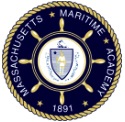
ST-0999M
Sea Term I (MSEP Portion)
Course Description
Sea Term I (MSEP Portion) s a component of Sea Term 1 for USCG license track majors.
Learning Objectives
Demonstrate knowledge and understanding of the following STCW elements:
- AB-D-C3.1 Knowledge of the precautions to be taken to prevent pollution of the marine environment
- AB-D-C3.2 Knowledge of the use and operation of anti-pollution equipment
- AB-D-C3.3 Knowledge of the approved methods for disposal of marine pollutants
- AB-E-C3.1 Knowledge of the precautions to be taken to prevent pollution of the marine environment
- AB-E-C3.2 Knowledge of the use and operation of anti-pollution equipment
- AB-E-C3.3 Knowledge of the approved methods for disposal of marine pollutants
- OICEW-D1.1 Knowledge of the precautions to be taken to prevent pollution of the marine environment
- OICEW-D1.2 Anti-pollution procedures and all associated equipment
- OICEW-D1.3 Importance of proactive measures to protect the marine environment
- OICNW-C1.1 Knowledge of the precautions to be taken to prevent pollution of the marine environment
- OICNW-C1.2 Anti-pollution procedures and all associated equipment
- OICNW-C1.3 Importance of proactive measures to protect the marine environment
- PS-SR-X2.1 Basic knowledge of the impact of shipping on the marine environment
- PS-SR-X2.1 Effects of operational or accidental pollution on the marine environment
- PS-SR-X2.2 Basic environmental protection procedures
- PS-SR-X2.3 Basic knowledge of complexity and diversity of the marine environment
- RFPEW-A1.4 Basic environmental protection procedures
- RFPNW-X3.6 Basic environmental protection procedures
Syllabus
- BASIC knowledge of the Complexity of Marine Environment
- What is Marine Environment?
- What is Marine Environment?
- Ocean Currents and Circulatory Patterns
- Complexity and diversity of the marine environment
- What is Pollution?
- BASIC knowledge of the impact of shipping on the marine environment and the effects of operational or accidental pollution on it.
- Oil – Petroleum – Cargo, Bunkers
- Dirty Ballast Overboard
- Groundings
- Collisions
- Plastics
- Invasive species
- Sewage
- Trash/Garbage
- Damage Coral – Anchoring, Heat, Pollution
- Vapor Emissions – Cargo
- Vapor Emissions – Ships’ Stack
- Noxious Liquid Substances
- Deck Runoff from vessels
- BASIC knowledge of environmental protection procedures
- US Laws governing Pollution of Marine Environment: http://water.epa.gov/aboutow/owow/laws.cfm
- Clean Water Act 1972
- Oil Pollution Act of 1990
- Nonindigenous Aquatic Nuisance Prevention and Control act of 1990
- International Laws governing Pollution of Marine Environment
- MARPOL
- How far offshore – if possible, can you throw: trash, garbage, oil, sewage, etc?
- OFFICER Level knowledge of importance of proactive measures to protect the marine environment and the precautions to be taken to prevent pollution of the marine environment.
- Enforcing Agencies: USCG – EPA
- Penalties – fines, prison, seizures
- Foreign Govt under MARPOL
- Oil Pollution Response Plan
- Waste Management Plan
- Tanker ESCORT Tugs
- Tanker speed Zones
- Tanker Exclusionary areas
- No Transit Zones – Tankers – Florida Keys – Avoid Coral and sanctuaries
- No anchor Zones – Coral Damage
- Penalties
- OFFICER Level knowledge of the use and operation of anti-pollution equipment
- How does the mariner avoid Polluting: - Give KENNEDY Procedure EXAMPLESe:
- Trash disposal,
- Trash Compaction,
- Garbage Grinding,
- Garbage Disposal,
- Foreign Trash/Garbage problems
- Sewage Systems on board
- Holding Tanks
- Ballast disposal
- Oily Water Separators
- Scupper Plugs
- Hi Level Alarms
- Scupper Plugs
- Spill Tanks
- Slop Tanks
- No Discharge Zones – Trash/Garbage
- No Discharge Zones – Oil
- Closed Loading – Vapor Exchange
- Load on Top, Settling, Gravitation,
- Segregated Ballast Tanks
- Double Bottoms
- Double Hulls
- Crude Oil Washing
- Discharge Facilities
- Sewage Treatment Plants
- Holding Tanks
- Disinfecting Systems
- MSDs
- Special Areas
- Going Electric at the dock
- LSFO
- Whistle-blower Law
- Oily Water Separator
- Oily Water Monitor
- Ballast Water Exchange
- Trash Log – Cubic Meters
- BASIC (Rating on watch) knowledge of what you need to do to avoid pollution as a rating in the engine room or on deck.
- Specific KENNEDY Anti-pollution procedures/equipment
- Oil Pollution Prevention Plan
- Waste Management Plan
- Bunkering
- Sewage
- Others
- BASIC knowledge of the approved methods for disposal of marine pollutants
- Absorbent Pads
- Oil Booms
- Sealed Drums – thence ashore
- Shoreside facilities
- Dispersants
- Burning
- Recovery vessels – Govt stationed vessels around US
- OFFICER Right Whale Protection
- Laws, regulations and required procedures for the prevention of north atlantic right whale ship strikes
- Mandatory ship reporting system within right whale habitats
- Voyage planning in consideration of seasonal occurrences and migratory routes
- Watchkeeping (watch-standing) - acquiring recent right whale sightings and applying suggested practices for prevention of collisions
- Tracking future regulatory requirements relating to right whales and ship strikes
DEFINITIONS
- Marine Environment
- Pollution
- Oil
- OPA-90
- MARPOL
- Load on Top
- Gravitation
- Bilges
- Oily Water Separator
- Waste Management Plan
- Oil Pollution Prevention Plan